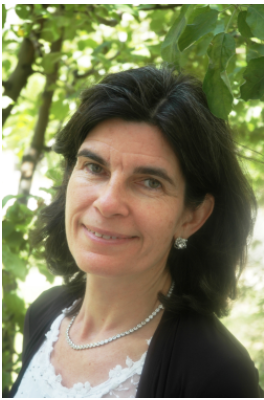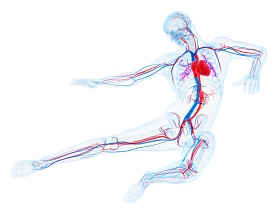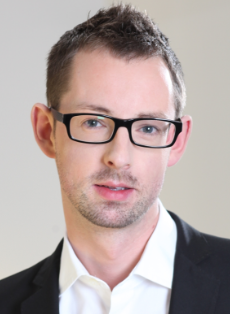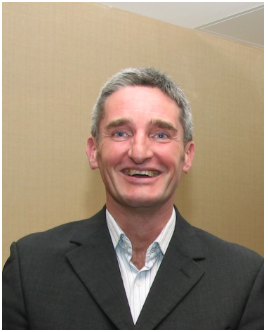The EAHP invites you to attend the 2014 Synergy Satellite event: ACPE UPN: 0475-0000-14-004-L04-P. A knowledge based activity.
“Anticoagulants-a matter of heart!
Towards a bright future?"
Session: Wednesday, 26 March, 2014
11:30-13:00, Room 117
Sponsored by an education grant from Bayer Pharmaceuticals – Invitation
Abstract
The introduction of novel oral anticoagulants, e.g. dabigatran, rivaroxaban, and apixaban, into clinical practice challenge well established concepts of anticoagulation pharmacotherapy, such as low molecular weight heparins and vitamin k antagonists.Therapeutic management using coumarins, for example, is complicated. Efficacy is, among others, influenced by diet, drug-drug interactions and genetic polymorphisms. Frequent monitoring is necessary and time consuming. Hospital pharmacists have always focused on this drug class, as it is associated with a high risk of drug-related problems and medication errors. The results of clinical landmark trials with these new drugs and ongoing research will undoubtedly lead to changes in the use of vitamin K antagonists and significantly influence the pharmacotherapy of relevant cardiovascular diseases.
These novel drugs unquestionably come with advantages. However, hospital pharmacists have to be aware of uncertainties (e.g. mode of reversal of anticoagulation, long-term safety data) and of the limitations (e.g. adherence) of these new anticoagulants.These anticoagulants are promising alternatives, but their widespread use in everyday clinical practice leave questions that still need to be answered. How will the safety record of these novel drugs compare to that of half-a-century safety data of Warfarin? Will there still be a place for vitamin K antagonists in future anticoagulation? Is one newer agent superior to the others? Will drug costs be a hindering factor for treatment access?
As key stakeholders in assessing and selecting drugs for in-hospital use, hospital pharmacists need to acquire an in-depth knowledge of these novel anticoagulants, and be competent to comment on their safety and in addition contribute to patient education.
Teaching Goals
• To illustrate clinical decision criteria how to choose among the available novel oral anticoagulants in terms of efficacy and safety
• To present selected issues of patient education with regard to the available novel oral anticoagulants
• To discuss novel oral anticoagulants in terms of value for money
Learning Objectives
After the seminar the participants should be able to
• Recall the most important efficacy and safety issues in order to distinguish among the available novel oral anticoagulants
• Outline the most important educational aspects in daily practice with regard to the available novel oral anticoagulants
• Describe key issues regarding cost-effectiveness of the available novel oral anticoagulants
 Moderator: Anthony Sinclair (United Kingdom)
Moderator: Anthony Sinclair (United Kingdom)
Affiliation:
Birmingham Children’s Hospital NHS Foundation Trust and Aston University
Current Status, Position
Director of Pharmacy
Education: Professor Anthony Sinclair is Director of Pharmacy at Birmingham Children’s Hospital and holds an Honorary Visiting Chair at Aston University. Areas of interest: total management of liquid specials, the development of paediatric novel dose forms and the development of pharmacy
undergraduate and pharmacist post graduate education and development programmes. Committees attended include MPC, RPS (EAP), NPPG and EAHP whom he has represented at EDQM.
Research area: Predicting errors in paediatric pharmacy and interface Pharmacy.
Facilitator: Gunar Stemer (Austria)
Affiliation:
Allgemeines Krankenhaus der Stadt Wien – Universitätskliniken
Current Status, Position
Hospital pharmacist, focus on drug information and clinical pharmacy
Head of the Functional Unit Clinical pharmacy services within the pharmacy department
Secretary of the Austrian Association of Hospital Pharmacists
Member of the Scientific Committee of the EAHP
Education
- 2000-2006: Studies of Pharmacy, University of Vienna, degree Mpharm (Mag. pharm)
- 2007-2011: Doctoral thesis on Renal clinical pharmacy services, degree (Dr. rer. nat)
- Dr. Stemer teaches pharmacology at the Vienna University of Applied Sciences and supervises diploma thesis of Pharmacy students of the University of Vienna with a focus on hospital or clinical pharmacy.
Research Area
Dr. Stemer’s research interests cover the impact of clinical pharmacy services, with a focus on renal impairment and kidney transplant patients. He is further interested in the evaluation of drug information services.
Presenters:
 Sabine Eichinger (Austria)
Sabine Eichinger (Austria)
Affiliation: Medical University of Vienna
Current Status, Position
Associate Professor, Head of Anticoagulation Clinic
Education: Dr Eichinger-Hasenauer received her medical and scientific training at the Dept. of Medicine I, Div. of Haematology and Haemostasis, at the University of Vienna, and at the Beth Israel Hospital, Harvard Medical School, in Boston, USA. Since 1996 she is associate professor at the Medical University of Vienna where she is Head of the Anticoagulation Clinic
Research Area
Dr. Eichinger-Hasenauer has undertaken research to investigate the mechanism of action of procoagulants and anticoagulants, and the pathophysiology of the coagulation system in women, and evaluates the risk factors for thrombotic disease and biomarkers of the coagulation system. In 1992, she initiated one of the worldwide largest study in patients with venous thrombosis, the Austrian Study on Recurrent Venous Thromboembolism. She is the local principal investigator of several interventional studies in patients with venous thromboembolism and atrial fibrillation and an internationally recognized expert in designing and conducting clinical studies. She is chairman-elect of the Scientific and Standardization Subcommittee of the International Society on Thrombosis and Haemostasis and recipient of several international awards.
Duncan McRobbie (United Kingdom)
Affiliation: Guy’s and St Thomas’ NHS Foundation Trust
Current Status, Position
Duncan McRobbie is currently Associate Chief Pharmacist – Clinical Services at Guy’s and St Thomas’ NHS Foundation Trust in London and is a reader at Kings College London and a visiting profess
or UCL School of Pharmacy.
Education
Duncan McRobbie registered as a pharmacist in 1984 and received his Masters in Clinical Pharmacy from Brighton University in 1993. He is the nominated clinical pharmacist lead for the Pharmaceutical Science Clinical Academic Group within Kings Health Partnership, one of 5 Academic Health Science Centres in the UK. He is a past chair of the United Kingdom Clinical Pharmacy Association and immediate past chair of that organization's Cardiac Pharmacists group. He has represented his profession on various national committees and is a Fellow of the Royal Pharmaceutical Society.
Research Area
In his specialist area of clinical practice as Lead Cardiovascular Pharmacist, Duncan works to ensure patients with cardiac disease receive optimal pharmaceutical care. Duncan teaches extensively on coronary heart disease to undergraduates and postgraduates from all professions. His research interests include understanding how medicines can best be optimized for patients and designing and evaluating tools to test pharmacists’ competence to undertake current and future roles. He has published widely in this and other fields of pharmacy practice.
 Marianne Klemp (Norway)
Marianne Klemp (Norway)
Presentation: "Economic evaluation of oral anticoagulants for atrial fibrillation"
Affiliation: Norwegian Knowledge Centre for the Health Services (NOKC)
Current Status, Position
Research Director, Norwegian Knowledge Centre for the Health Services (NOKC), Oslo, Norway
Associate Professor, Department of Pharmacology, University of Oslo, Norway
Education
1979 -1985: MD, Ludwig Maximillian University, Munich,
1997: PhD, University of Oslo
Research Area
Marianne Klemp MD., Ph.D., works as a research director at Norwegian Knowledge Centre for the Health Services (NOKC) with a special emphasis on HTA of pharmaceuticals and health economic evaluations of all technologies. She has long experience from clinical research within cancer immunology and her special research focus has been to develop cancer vaccines. She has also wide experience from regulatory authorities with evaluation of new drugs, where she was active in the Gene Therapy Working Party at the European Medicines Agency (EMA). Her current research activities are concentrated around the use of HTA in decision-making along the life-cycle perspective of technologies. Klemp is also Associate Professor at the University of Oslo in Pharmacotherapy and she was originally trained as a surgeon.


























 Moderator:
Moderator: 
 Sabine Eichinger (Austria)
Sabine Eichinger (Austria)
 Marianne Klemp (Norway)
Marianne Klemp (Norway)